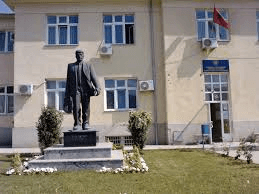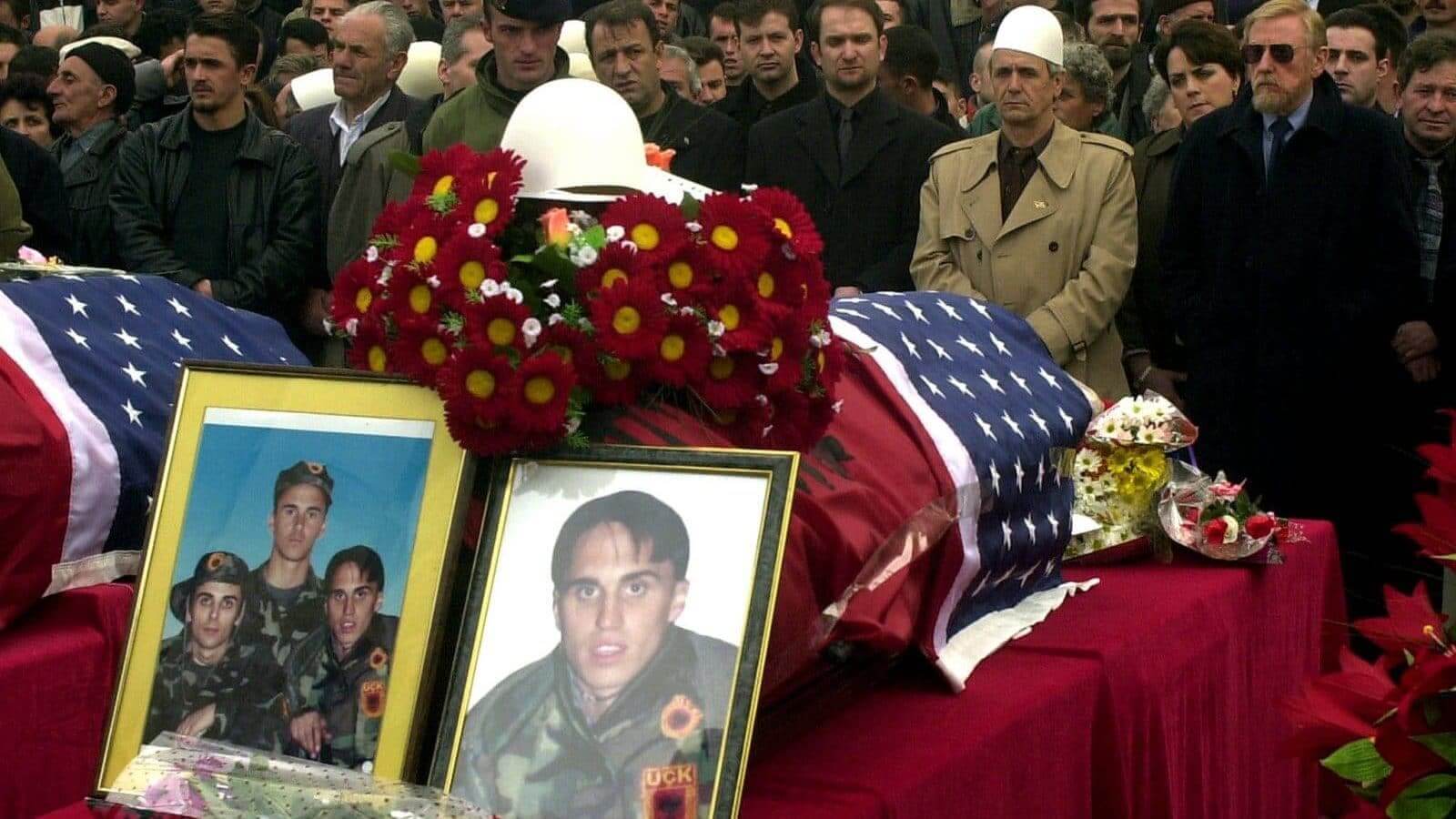The northern hills of Albania–like the upper reaches of Afghanistan–are largely ungovernable due to an inhospitable terrain, and have since ancient times, lived beyond the pale of the criminal justice system. The result has been an ancient, orally handed down set of customary laws which are known as ‘Kanun of Leke Dukagjini.’ This code, in the absence of any formal policing, lays down how members of society deal with murders. It sanctions the explicit declaration of blood feuds, which usually ends in the killing of every male member of the feuding families. Once a feud has been declared, men can stand their ground and fight or remain inside their homes in house arrest, which is granted permanent safe haven status by the Kanun. The third option is to flee the country without any guarantees that the hunt will be called off.
Though the Kanun blood feuds are declared by and enforced on male family members, the code bestows women with equal opportunity once all the men in the family have been killed. They can take the oath of ‘sworn virgins’ or “Virgjinesha,” as they are called in Albania. Such virgins then take a male name, wear men’s clothes, renounce sex, married life and parenthood and most importantly seek to fulfil the vow of killing the men of the feuding family.
The primitive code has another interesting provision wherein Virjinesha can be invoked peacefully to avoid an arranged marriage. Refusal of a marriage proposal by a girl without the oath may be seen as an affront to the groom’s family leading to deadly inter-generational feuds. The ‘sworn virgin’ oath is one way to non-violently turn down an unwanted suitor.
Virjineshas’ onerous responsibilities come with a few advantages too. They can take a man’s job, smoke, drink with the men at the bar, wear trousers and even make family decisions. They don’t have to serve food with their heads bowed and can disappear inside the house without looking at the guests. Becoming a Virgjinesha is a truly unique cultural reversal of gendered norms.
The practice of Kanun is still in vogue, and I got a ring side view of it when serving as a UN peacekeeper in Kosovo. The UN had moved in to administer a territory that had seen bitter ethnic clashes between Orthodox Christian Serbs and Albanian Muslims during the 1990’s. These had led to large scale ethnic cleansing and indiscriminate NATO bombings that did not distinguish between civilian and non-civilian targets. After two years of hectic infrastructure and housing reconstruction, the second municipal elections were held on 26 October 2002. A very charismatic Albanian Muslim leader Uke Bytyqi, who had been elected Mayor of the Suhareka municipality in the first election in October 2000, was re-elected with a thumping majority. Uke, as he was popularly known since his guerrilla fighting days against the Milosevic regime, had become a good friend of mine. At the time, I was the UN administrator for that municipality.
Buoyed by the popular mandate, he seemed to have momentarily forgotten about the Kanun. The day after the election he and his supporters took out a long procession of cars with huge party flags, from one village to the other. In their euphoria they forgot the blood feud oath taken against Uke by a family in one of the villages. This inter-familial hostility had its roots in political differences and not a personal injustice suffered by either party. The Krezeiyu brothers, who belonged to the rival PDK party, had dared Uke and his political party LDK’s members to enter their village with their party flags. It was a modification of the long-standing customary law.
While the victorious procession made sojourns at villages in the valley below, both brothers sat with a sniper rifle on the veranda of their house atop a hillock. Some 80 metres downhill they used their tractor to block the only road into the vineyard-covered scenic village of Lehshan and waited for the convoy. As the cavalcade stopped and some people tried to remove the tractor, the Krezeiyu brothers fired warning shots. This prompted Uke to come forward in an attempt to resolve the matter diplomatically. However, as soon as he crossed the tractor, long range shots rang out, instantaneously killing the newly re-elected but yet to be sworn in mayor and two of his body guards. The killer Krezeiyu brothers then patiently waited for the police and peacefully surrendered to them.
At that very moment, my wife, son and I were enjoying an elaborate Sunday lunch at the house of the elderly ex-mayor of the same municipality. He was a widely respected avuncular man whose large joint family always warmly welcomed us into their home. The grape vine of violent societies is very efficient. One of the ex-mayor’s several sons rushed in breathlessly and whispered the tale of this murder in his father’s ears. He then asked us to leave immediately for our own safety, not knowing what turn the incident would take. We managed to drive out of the town in the nick of time, because within an hour, a huge, angry crowd had gathered in the town square. At such times, it was not uncommon for the people to turn against UN personnel. With the passage of time they had started to see us less as liberators and more as occupiers. The international community, in the absence of mature governance structures, was resisting the popular demand for full-fledged sovereignty.
The next day, as I nervously drove up to my office, I found hundreds of people standing outside the building in an eerie silence. NATO soldiers in tanks and armoured personnel carriers were keeping a close watch. The next Monday, Ibrahim Rugova, President of the Kosovo and LDK party - a self-professed admirer of Gandhi - condemned the killings and asked for restraint. He declared a day of mourning for Uke’s funeral, aiming to use tragedy to renew the country’s commitment to peace and democracy.
On Tuesday, thousands of people flooded Uke’s village Semetisht for the funeral. His wife stood stoically next to the grave and appealed for no retaliation. President Rugova delivered a sombre address to the great mass of mostly ex-guerrillas, and asked them to mourn in dignity and not sully the martyr’s memory with any more bloodshed. Gradually, thousands of people melted away. Watching them leave in the fading light of that quiet Balkan autumn afternoon, my belief in humanity’s innate yearning for peace and progress was reinforced.


